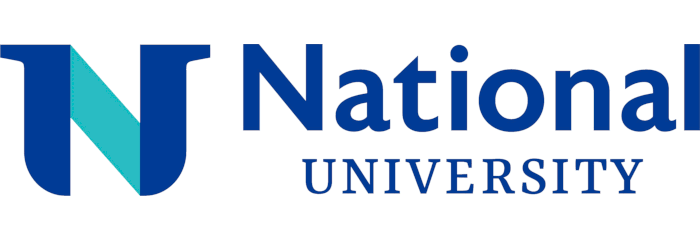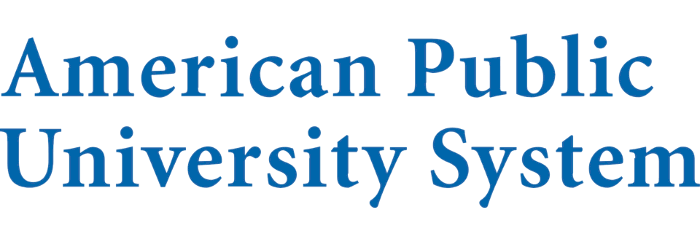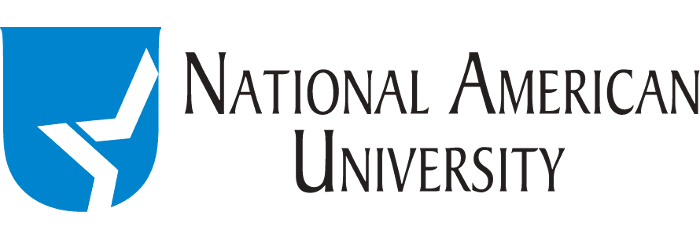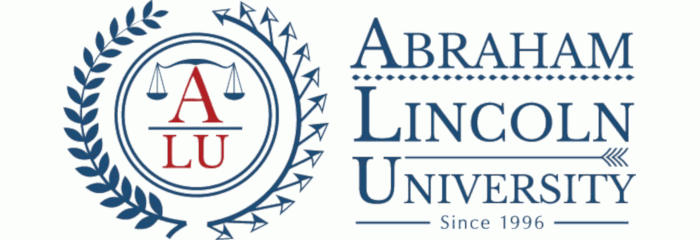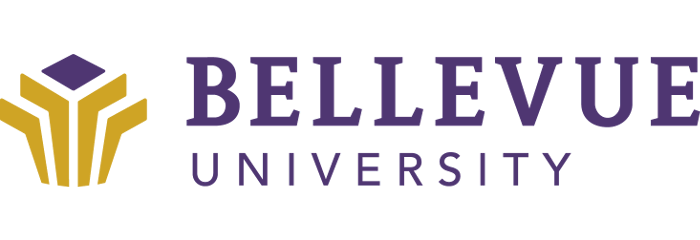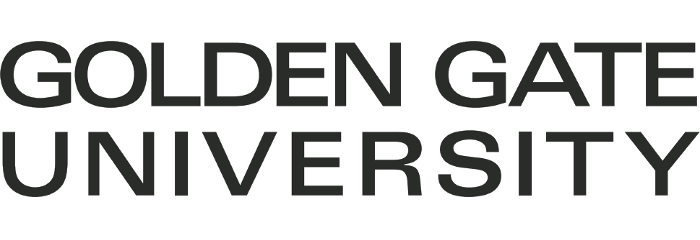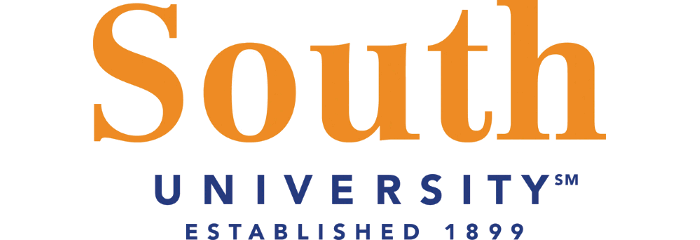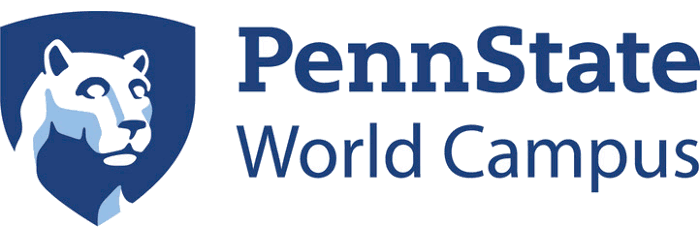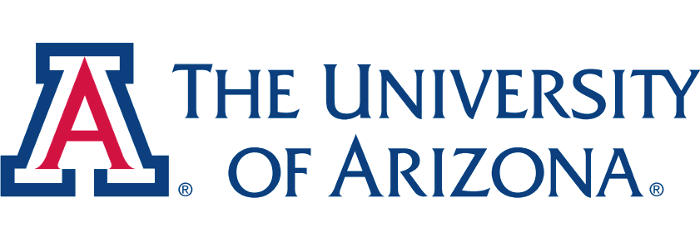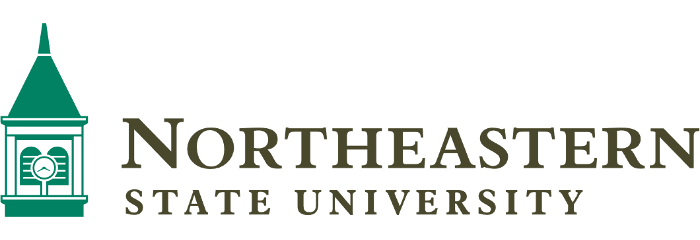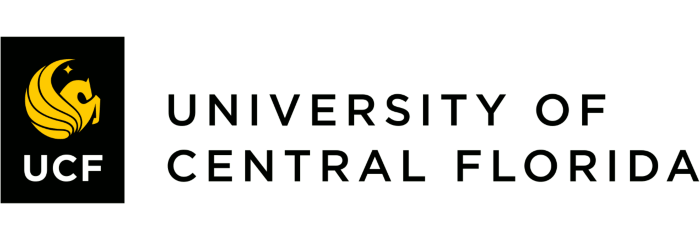
The cheapest online law schools offer a flexible path to learning legal principles, covering criminal law, contracts, and civil procedure. These online bachelor's programs help develop critical thinking skills while allowing you to balance education with other commitments. Though not a direct path to practicing law, this degree can lead to careers in compliance, paralegal work, or legal research.
Key Takeaways:
- National University has the #1 most affordable online Bachelor of Arts in Pre-Law Studies, with yearly tuition at $4,162.
- Abraham Lincoln University leads with the best student-to-faculty ratio of 5:1.
- Arizona State University is the most popular online school on our list, with over 50,000 enrolled entirely remotely.
Our research pinpoints the most affordable online degrees by carefully reviewing tuition rates. All featured schools are accredited and offer fully online programs with clear, upfront pricing. See our for details on how we select programs.
2025 Most Affordable UUֱ��s for Law Degrees
| Rank | School | Location | Annual Tuition |
|---|---|---|---|
| National University | La Jolla (CA) | $4,162 | |
| Pennsylvania Western University | Clarion (PA) (and 2 others) | $7,870 | |
| University of North Carolina at Greensboro | Greensboro (NC) | $9,324 | |
| Regent University Online | Virginia Beach (VA) | $9,480 | |
| Ohio University - Main Campus | Athens (OH) | $9,630 | |
| American Public University System | Charles Town (WV) | $10,500 | |
| Purdue Global | Indianapolis (IN) | $11,130 | |
| National American University Online | Rapid City (SD) (and 1 other) | $11,400 | |
| PennWest California | California (PA) | $11,574 | |
| Liberty University | Lynchburg (VA) | $11,700 | |
| Abraham Lincoln University | Los Angeles (CA) | $12,450 | |
| Wilmington University | New Castle (DE) | $12,570 | |
| Troy University | Troy (AL) | $12,720 | |
| Bellevue University | Bellevue (NE) | $13,470 | |
| Golden Gate University | San Francisco (CA) | $13,860 | |
| South University Online | Multiple Locations | $14,250 | |
| University of Maryland Global Campus | Adelphi (MD) | $14,970 | |
| UMass Global | Multiple Locations | $15,000 | |
| Pennsylvania State University - World Campus | University Park (PA) | $15,356 | |
| University of Arizona | Tucson (AZ) (and 1 other) | $15,750 | |
| Northeastern State University | Tahlequah (OK) | $16,399 | |
| Arizona State University, Online | Tempe (AZ) (and 4 others) | $17,220 | |
| University of Central Florida | Orlando (FL) (and 7 others) | $18,481 | |
| Florida National University | Hialeah (FL) | $21,000 | |
| Florida Gulf Coast University | Fort Myers (FL) | $21,289 | |
| Davenport University | Grand Rapids (MI) | $29,220 |
ADVERTISEMENT
Online Law Bachelor's Degrees You May Be Interested In
Overview of Online Law Bachelor's Degrees
Studying law at the undergraduate level provides an excellent platform for several different career paths. As a graduate with an online degree in law, you'll be prepared to pursue a career in the legal profession or in public service, or you can continue your education and become a lawyer.
As you progress through a program, you'll engage in a mix of theoretical and practical coursework. For instance, you might be tasked with analyzing real-life cases and writing legal briefs, which allows you to apply the legal theories and principles that you learn from lectures and readings. Other projects may involve research on evolving legal issues or debates, collaborative group work, and presentations.
In general, the curriculum of a bachelor's program in law is designed to help you develop valuable, marketable skills. Among the essential technical skills you'll acquire are legal research, analysis, and writing. Additionally, you'll hone vital soft skills, including critical thinking, problem-solving, and effective communication.
Common Courses
Graduation requirements for a bachelor's in law degree typically involve the completion of 120 credit hours. Schools often require an internship, and some programs also culminate in a capstone project.
Below are some of the core courses that you may find in an online law program:
Constitutional Law
This course explores the fundamental principles outlined in the U.S. Constitution. Students will learn how the courts interpret these principles, as well as their impact on individual rights and governmental powers.
Criminal Law
Students will gain an understanding of the legal and societal implications of criminal behavior. This course covers the various components of a crime, its defenses, and the procedures followed in the criminal justice system.
Legal Writing and Research
In this course, students will learn how to research legal questions and write about them effectively. This includes drafting legal documents, such as contracts and legal briefs.
Civil Procedure
This course teaches students the processes followed in civil cases, including the stages of a lawsuit and the rules of evidence. It prepares students for the procedural aspects of legal practice.
Business Law
This course covers the legal aspects of business transactions and corporate governance. Students will learn about contracts, liability, and other legal issues related to running a business.
Ethics in Law
In this course, students explore the ethical responsibilities of legal professionals. Topics are likely to include professional conduct, confidentiality, and conflict of interest.
Find more bachelor's in law programs on our list of the 2024 Best Online Law Schools.
Funding an Online Law Degree
When it comes to paying for your degree, you may have several sources of funding available. You'll likely use some combination of savings, income, gifts, scholarships, grants, and loans.
As you complete your bachelor's program, you may discover any number of ways to save money in college, including earning extra income from a full-time or part-time job. However, there are several key decisions you can make right up front that may help minimize the cost of the degree:
Choose an online degree. One way to cut costs is to choose an online program like those at the most affordable law schools listed above. Many colleges charge lower tuition rates for online programs, so distance learning could reduce your annual tuition costs. Also, by attending college from home, you eliminate room and board and some transportation expenses.
Go public, not private. The most current data from the National Center for Education Statistics (NCES) indicate that publicly run colleges are typically less expensive than private law schools. Specifically, the for bachelor's degrees at public schools was $9,375, as compared to $32,825 for private.
Reduce your living expenses. Going to college online allows you to live anywhere you choose. To minimize rent, food, and other living expenses while you're in school, consider relocating to a state with a lower cost of living.
Start with community college. The first two years of a bachelor's program are usually filled with general education courses like political science and chemistry. Taking these courses at a community college — which average $3,501 a year, per the NCES — could save you thousands in tuition before you transfer to a four-year university. Community colleges are also convenient, and most offer online classes.
Financial Aid
Perhaps the most popular way to fund a bachelor's degree is through financial aid, which comes in many forms. Scholarships and grants are the best because they don't have to be paid back, but student loans can also be helpful. However, federal and private student loans must be repaid with interest.
To calculate the total cost of the loan plus the interest, use our student loan repayment calculator.
In general, funding from the federal and state governments and some from the schools themselves go to students who can demonstrate financial need. School-sponsored and private scholarships may also be awarded based on need, academic achievement, family heritage, or community service.
Regardless of whether you've decided to go to school on-campus or online, you can apply for aid if you're enrolled in an accredited bachelor's program. Applying for private scholarships usually requires individual applications, but applying for all other types of financial aid can be achieved with a single form — the Free Application for Federal Student Aid (FAFSA). If you're approved for aid, your school will send you a financial aid offer detailing the types and amounts of aid you may receive.
What Can You Do With an Online Law Degree?
Once you've earned an online law degree, you'll be qualified to pursue several different career paths.
Many graduates go on to work as legal assistants and paralegals in law firms, large corporations, and government agencies. (If you are interested in being a paralegal, however, you may find an associate degree in paralegal to be a good fit.) In general, they assist lawyers by investigating cases, conducting legal research, and writing reports, among other responsibilities. According to the Bureau of Labor Statistics (BLS), most employers require only an associate degree for these jobs, but a bachelor's may allow you to earn a higher salary. earn a median annual salary of $59,200, and demand is projected to grow by 4% through 2032, which is about as fast as average.
Other graduates may decide to use their degrees while serving the public. For example, some may go into law enforcement, working as , with a median annual salary of $69,160. Another option is to work in social services, where they may be able to influence public policy and the law. earn a median annual income of $74,240.
Of course, for many students, a law degree serves as the foundation for earning a Juris Doctor (JD), which is the terminal degree required to become a lawyer. The BLS notes that the median annual salary for is $135,740, based on the most recently available data.
FAQs About Online Law Degrees
How Do I Choose a Bachelor's in Law?
Choosing a bachelor's in law program involves several factors. It's crucial to research the curriculum to see if the courses offered align with your areas of interest. Some degree programs may have a particular focus, such as corporate law or criminal justice, so be sure to choose one that's going to help you meet your career goals.
The reputation of the institution and the program, as well as its accreditation status, are also important. Additionally, consider practical factors like the cost of tuition, availability of financial aid, flexibility of the program, and the availability of support services for students.
What Are the Admission Requirements for Law Degrees?
Admission requirements for online law programs vary by institution. However, common requirements include a high school diploma or the equivalent, a satisfactory GPA of at least 2.0, and high standardized test scores on the SAT or ACT.
When submitting your application, you may also be asked to provide a personal essay, a list of achievements, and one or more letters of recommendation.
Is a Law Degree Worth It?
Deciding whether an online law degree is worth it should be based on your own goals and priorities, but there are many benefits to consider. It can help you learn about laws, rights, and how the legal system works, which is important for understanding your own rights and responsibilities as a citizen. Additionally, earning a degree in law online can help you develop important soft skills, like critical thinking, research, and communication. These aptitudes are valuable in many careers, not only in the legal field. So, even if you don't end up becoming a lawyer, you'll still have skills that can help you succeed in other jobs.
Deciding to get a law degree online is not only the most affordable option, it allows you to study at times that work for you, like after work or on weekends. You don't have to move or commute to a campus either, saving you time and money. Plus, you can study at your own pace, which can be helpful if you have other commitments like a job or family responsibilities. However, please remember that online degrees still require hard work and dedication to succeed. You must be incredibly self-motivated and disciplined in order to do well.
Student Reviews of Online Law Programs
Purdue Global is a great school if you’re looking for an online environment. I enjoyed the easy of the registration and financial aid. The instructors, for the most part are good. I wish they offered more classes and programs to choose from. Overall, with a few notable exceptions it was a great experience.
Review Date: 5/4/2022
Would Recommend: Yes
Helpful for Career: No
So even after I withdrew from the trial offer well in advance and received confirmation of my withdrawal I received a notice from my Credit Card company that Purdue(AKA KAPLAN) withdrew a payment. All I can say is that I am glad that I saw the warning signs in advance and ran from this institution as quick as possible. On the positive side, the people on enrolment were helpful, I just think because of their size that they must outsource the administrative departments which could be a nightmare for... Read More
Review Date: 2/1/2019
Would Recommend: No
Helpful for Career: No
Central Washington University is an excellent school where students in the Law and Justice department learn the basics of the legal field in a variety of specializations. These specializations range from pre-law, forestry and law enforcement in class with a diverse group of colleagues and professors. Classes are offered online for students living in different parts of the states, employed or with a busy schedule. Professors for the most part are very attentive and usually answer questions through... Read More
Review Date: 7/5/2016
Would Recommend: Yes
Helpful for Career: Yes
Excellent school with a great price tag. Teachers are accessible and brilliant. My fellow students are motivated and driven to succeed. It has been a great experience thus far.
Review Date: 7/11/2013
Would Recommend: Yes
Helpful for Career: No
Purdue is a place filled with wonderful opportunities. My education there prepared me for my career and gave me the skills necessary to enter law school. My only disappointment is the lax attitude toward diversity and diversity education. Often time minority students do not feel welcome or safe due to hate crimes. The administration says little to nothing about the incidents. Purdue is a wonderful place to get an education, but needs direction when it comes to diversity and inclusion.
Review Date: 2/16/2017
Would Recommend: Yes
Helpful for Career: Yes
I am currently enrolled in the Fall semester at Ave Maria School of Law. Before taking on this journey, I graduated with a Bachelors in Science from Florida Gulf Coast University in 2012. I graduated at the age of 22 with a 2 year old and a 10 month old. The university did a great job at assisting me complete my degree with no set backs. The number of classes that were available online allowed me to fulfill my duties and responsibilities as a mother and still pursue my academic goals. There was also... Read More
Review Date: 6/28/2017
Would Recommend: Yes
Helpful for Career: No
I graduated in 2010 after completing a BS in Legal Studies. With the exception of one class/professor, my academic experience was great. Teachers were there to assist anytime I needed it. The only issue was with a professor of political philosophy….let’s just say we didn’t have the same philosophy and my grades show. Since returning to school as an adult and completing the BS and later a masters (at Salve Regina), I have had a 3.8 gpa. This one class I had a D- . The only real issue that I would... Read More
Review Date: 11/6/2021
Would Recommend: Yes
Helpful for Career: No
I would've been better suited for a smaller, private school in a more culturally diverse area.
If I could start over and HAD to choose a different degree, I'd probably do something in neuroscience, so what would that be? Biology, I suppose.
Take a year off before going to college.
Review Date: 8/6/2013
Would Recommend: No
Helpful for Career: No
I graduated from Concord in 2010. The school was (then) quite challenging. I was put on academic probation only once...(my fault) but the professors worked with me and I made it to graduation. I sat for the CA bar and passed on my second go round. The CA bar is most likely the toughest in the nation. I was able to waive into Virginia as a Corporate Counsel, sat for and passed the Md. bar and have had my own legal firm since 2012. Couldn't have done it without Concord Law. And I paid my tuition as... Read More
Review Date: 2/27/2023
Would Recommend: Yes
Helpful for Career: No
Currently, very few reputed universities and colleges offer Integrated and interdisciplinary programs so i suggest to join Quantum University Roorkee which ranks No.1 in entire Uttarakhand. There are so many different courses in the university with different combinations. Here you have an advantage of gaining several value added certification programs without any extra fee and you can also continue your passion with passion program. Here I am the student of BALLB from Quantum university. Which is... Read More
Review Date: 12/29/2021
Would Recommend: Yes
Helpful for Career: No
I moved all the way to Lynchburg from Ca to attend Liberty, turning down several good schools because I thought I was getting an amazing Christian experience. Let me tell you, it was like being on a season of celebrity apprentice. Kids back stabbing each other and making up stories about each other to get ahead. The financial aid department is completely incompetent, and that is probably a compliment. They fouled up an outside scholarship, from CA, that they had promised to take when I accepted the... Read More
Review Date: 12/22/2019
Would Recommend: No
Helpful for Career: No
In terms of class size, Southwestern was amazing for one-on-one time with professors. Students can really connect with professors and develop an educational network that has led many undergrads to pursue higher education. In fact, a large majority of SU students go on to work towards a Masters/PhD right after graduation. Classes at SU were largely discussion based, so you really get to know your classmates. The school also organizes a semester "symposium" that invites speakers to give extremely interesting... Read More
Review Date: 8/11/2019
Would Recommend: Yes
Helpful for Career: Yes
Emory University was a top 20 nationally ranked private university at the time I attended, 2009-2013. I attended because it was close enough yet far enough from my home in Orlando, FL to give me a sense of independence. The campus was immaculate, with white marble buildings, an impressively enormous libary, and within the bustling city of Metropolitan Atlanta. These three facets of campus life would be what sustained me through the most trying, most demoralizing, and most institutionally racist experiences... Read More
Freshman year, I learned the meaning of institutional racism through Emory's selective enforcement of the Office of Student Conduct's anti-hazing policies. I regularly witnessed evidence of hazing on "Frat Row": white boys streaking, white boys parading campus wearing skirts, CVS cotton balls strewn on the front lawn of a black fraternity with the vandalized message "Pick up cotton, ns". Never did I hear of those fraternities being suspended, investivated or barred from campus for a number of years. I joined the freshman step team to make friends and get involved with the black student body. Stepping requires stamina and physical fitness. After a lengthy investigation and interrogation process, Emory disbanded and banned the step team, my first foray into student activity, within 3 months, due to what they called "hazing".
The following year, I was days from my official initiation ceremony for a high profile black sorority, one my mother and family friends were travelling to attend. On the day of my ceremony, we got news that Emory had instructed this sorority to "cease and desist" all membership intake procedures. It was like a bad case of deja vu: again, I was selected as a 'witness' and pursued for interrogation as part of Emory's investigation into this sorority. After another lengthy process, this sorority was disbanded and barred from campus for 5 years, effective immediately. My hopes and dreams of creating a sense of community, pride, and love of my university were dashed into the dust on that day. I've never felt like more of a criminal than these interrogations. My GPA suffered, my sense of belonging suffered.
After that, black fraternities and sororities were routinely removed from Emory's campus. I did not notice any hazing allegations being investigated or punished among the white Greek organizations. Not even the one that pulled the racist, vile 'pick up cotton' stunt.
Nothing, however, could prepare me for what was supposed to be the final spring semester of my undergraduate career. Tuition was about $53,000+ my first year, that amount grew significantly each year. The financial aid and grants they offered me was substantial my freshman year, that amount quickly shrank to almost nothing by my senior year. I was blocked from enrollment in my final semester: I only had two classes left to get my BA degree, and I could not enroll due to insufficient funds. I met with and pleaded with Financial aid and Student Financial Services officers. They were beyond apathetic, they blamed me for picking a school my family could not afford.
All in all, I would not recommend students of color or students that will rely heavily on financial assistance from the government or the institution attend this university. I should have gone to Spelman, a school with just as rigorous a curriculum, but of much more limited financial resources. If I knew then what I know now, I would have chosen a school that goes out of its way to foster community, pride, and a sense of belonging in its students.
Review Date: 6/26/2019
Would Recommend: Yes
Helpful for Career: No
I was initially drawn to Loyola University Chicago because it has a great pitch-- private, rigorous, Jesuit education on a beautiful campus, in the heart of Chicago. However, the quality did not justify the cost. I became increasingly disillusioned with the university as I feel it does not act on the ideals it espouses. I truly felt like the advisors and administration put forth minimal effort and showed little investment in the success of its students. Bottom line is I walked away with 90k in student... Read More
Review Date: 12/19/2017
Would Recommend: No
Helpful for Career: No
Wonderful education- but extremely difficult, much harder than a state school. Location and campus are perfect, beautiful. However the social life can be dull since it's small and people are cliquey.
Review Date: 11/9/2015
Would Recommend: Yes
Helpful for Career: Yes
The University of Washington - Tacoma provides its students with an excellent education with the added benefit of a private school atmosphere where students can get to know their professors personally rather than being 1 out of 400 students; at the more affordable cost of public tuition prices. It's the best of both worlds and I would highly recommend this University. The law and policy bachelors program at UWT helped prepare me for my masters program in International Economic Law.
Review Date: 8/1/2016
Would Recommend: Yes
Helpful for Career: Yes
Rider University is a decent school. It's not the most exciting college experience; there is very little to do in the area and extracurriculars are not an emphasis. The quality of the education varies on your major; the business school is highly regarded but many classes outside this discipline are not very challenging. Overall, I would not recommend Rider as anything more than a safety school which is an opinion shared by many others.
Review Date: 9/12/2016
Would Recommend: Yes
Helpful for Career: No
American University is a really great place to go if you are interested in working in Washington D.C. AU offers you a unique opportunity to build a very substantial network that can help you get a job post graduation. The School of International Service itself offers a more theory-based program, and does not necessarily equip you with the skills you will need to pursue a career in foreign service or international development.
Review Date: 5/10/2018
Would Recommend: Yes
Helpful for Career: Yes
I double majored in Jurisprudence and Political Science. The jurisprudence program at MSU includes research based courses and a final interdisciplinary thesis. Students tackle the philosophy behind our legal system, legal writing, and navigating legal databases. It is a relatively small group of students and is a great program.
Review Date: 8/5/2016
Would Recommend: Yes
Helpful for Career: Yes
International Studies at the UW was really wonderful for building my own personal worldview and helped me think critically about the world. While my track was not particularly career-focused, I know I gained a lot of pertinent skills needed for the workforce and life just by attending. The faculty was incredible and the classroom experience was incredibly rewarding.
Review Date: 2/19/2017
Would Recommend: Yes
Helpful for Career: Yes




